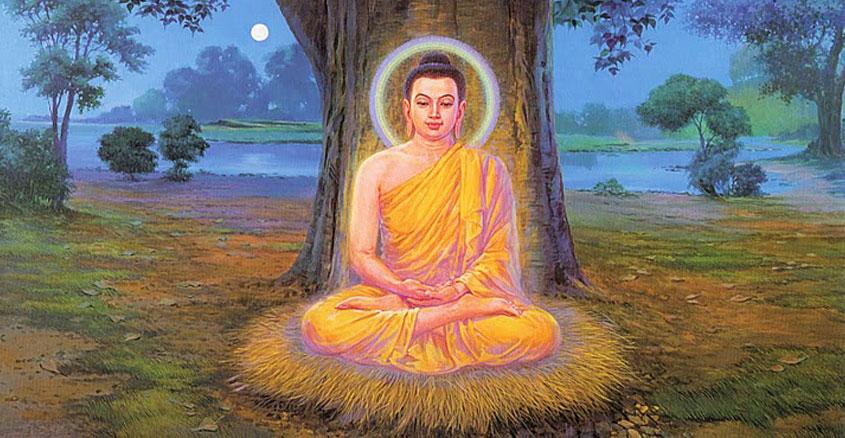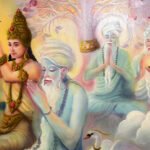Humans are social beings. We live with other people. We love to be around friends and family and share our experiences and thoughts with them. Social belonging and interpersonal exchange is a basic desire of human beings. Rapid adoption of various social networking tools illustrates this clearly.
However, if we fail to understand what kind of people we share our experiences with we can get into various kinds of troubles. We hear such stories almost every day now. This is because people are very deceptive. Often they do not show their true feelings and can present a completely different image to others. Therefore, it is very difficult to know another person. It is difficult to know whether a person is good or bad, or whether you can place your trust or not, whether you will get into trouble by sharing your experiences with that person or not. It is a great relief if we knew how to understand a person whether that person is a person of integrity or a person of no integrity. It is far greater relief if we have such a person in our life to share our experiences with. So, today, let us learn how to identify ‘a person of integrity’ and ‘a person of no integrity’. In Sappurisa sutta of Anguttara nikaya the Lord Buddha explains how to identify ‘a person of integrity’ and ‘a person of no integrity’. Here, the Lord Buddha explains ‘a person of integrity’ and ‘a person of no integrity’ can be identified by their qualities.
“Monks, a person endowed with these four qualities can be known as ‘a person of no integrity.’ Which four?
“There is the case where a person of no integrity, when unasked, reveals another person’s bad points, to say nothing of when asked. Furthermore, when asked, when pressed with questions, he is one who speaks of another person’s bad points in full & in detail, without omission, without holding back. Of this person you may know, ‘This person is a person of no integrity.’
“Then again, a person of no integrity, when asked, does not reveal another person’s good points, to say nothing of when unasked. Furthermore, when asked, when pressed with questions, he is one who speaks of another person’s good points not in full, not in detail, with omissions, holding back. Of this person you may know, ‘This person is a person of no integrity.’
“Then again, a person of no integrity, when asked, does not reveal his own bad points, to say nothing of when unasked. Furthermore, when asked, when pressed with questions, he is one who speaks of his own bad points not in full, not in detail, with omissions, holding back. Of this person you may know, ‘This person is a person of no integrity.’
“Then again, a person of no integrity, when unasked, reveals his own good points, to say nothing of when asked. Furthermore, when asked, when pressed with questions, he is one who speaks of his own good points in full & in detail, without omissions, without holding back. Of this person you may know, ‘This person is a person of no integrity.’
“Monks, a person endowed with these four qualities can be known as ‘a person of no integrity.’
“Now, a person endowed with these four qualities can be known as ‘a person of integrity.’ Which four?
“There is the case where a person of integrity, when asked, does not reveal another person’s bad points, to say nothing of when unasked. Furthermore, when asked, when pressed with questions, he is one who speaks of another person’s bad points not in full, not in detail, with omissions, holding back. Of this person you may know, ‘This person is a person of integrity.’
“Then again, a person of integrity, when unasked, reveals another person’s good points, to say nothing of when asked. Furthermore, when asked, when pressed with questions, he is one who speaks of another person’s good points in full & in detail, without omissions, without holding back. Of this person you may know, ‘This person is a person of integrity.’
“Then again, a person of integrity, when unasked, reveals his own bad points, to say nothing of when asked. Furthermore, when asked, when pressed with questions, he is one who speaks of his own bad points in full & in detail, without omissions, without holding back. Of this person you may know, ‘This person is a person of integrity.’
“Then again, a person of integrity, when asked, does not reveal his own good points, to say nothing of when unasked. Furthermore, when asked, when pressed with questions, he is one who speaks of his own good points not in full, not in detail, with omissions, holding back. Of this person you may know, ‘This person is a person of integrity.’
“Monks, a person endowed with these four qualities can be known as ‘a person of integrity.'”
As much as this sutta helps us identify ‘a person of integrity’ and ‘a person of no integrity’, it also helps us evaluate ourselves. If we can be honest and look into our selves we can see, that we all have the qualities of ‘a person of integrity’ as well as ‘a person of no integrity’ to different extents. And since we all love to associate with a person of integrity, let us first try to develop the qualities of a person of integrity. Then we can be a person of integrity to someone else. And when the others see your qualities they too will want to be like you; ‘a person of integrity’.
It is not easy. A great deal of self-discipline is needed to be such a person. Trying to live according to noble Dhamma is like swimming against the current, it is not easy, because our mind is disposed towards bad, towards unwholesomeness. That is why the Lord Buddha has stated that three things are essential in practicing Dhmma. What three? Wisdom to know good from bad, effort to defeat defilements and mindfulness. In Satara—satipatthana they are explained as “Atapi, Sampajana, Satima”. In Panca-indriya and Panca-bala they are explained as “Veeriya, Sati, Panna”. In Sapta-bojjanga it is, “Sati, Dhamma-vicaya, Veeriya”. In the noble Eight-fold path they are explained as “Samma ditti, Samma vayama, Samma sati”.
Therefore, let us be humble disciples of the Lord Buddha and strive to be a person of integrity.











Recent Comments